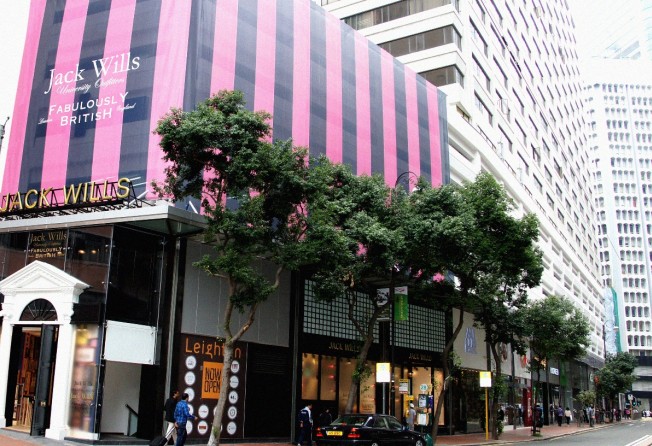Why aspirational brands offer a good bet for Hong Kong mall owners
With segment tipped to soar in Asia, landlords may find such outlets a safer bet than luxury

Luxury brands are having a hard time in Greater China. President Xi Jinping's campaign against corruption has had an immediate impact in dampening mainlanders' enthusiasm for the visible trappings of wealth.
Hong Kong's luxury retailers are recording diminishing turnover as a direct result.
Meanwhile, there appears to be no stopping the pace of sales at Hong Kong's Apple Stores.
Apple stands at the top of the table of "lifestyle" brands. This section of the market consists of products that are below luxury but are more premium than everyday items. They are generally accessible to middle-market customers while still commanding relatively high price points. Many such brands set out to be "aspirational".
Retail researcher Conlumino undertook last month an analysis of trends comparing expected growth rates by retail segment (everyday, lifestyle and luxury) between 2013 and 2018.
It predicts growth, averaged globally, in the everyday segment of just 2.6 per cent over the next five years, in luxury of 24.8 per cent and in lifestyle of 81.4 per cent. However, the standout figure of Conlumino's report is that consumer spending on lifestyle brands is likely to grow by some 277 per cent in Asia-Pacific by 2018.
The research highlights the extraordinary potential for growth of lifestyle brands in Asia-Pacific, particularly as the product category has overtaken luxury brands as the next key battleground in the international retail market.
Home-grown lifestyle brands in Hong Kong seem quite limited. One of the best known, Goods of Desire, covering homeware and apparel, is an obvious success story.
While I am sure I have missed many local marks, if Hong Kong is not brimming with expansionist lifestyle brands, overseas brands will be looking to establish here.
Few retail brands can afford an expensive failure by launching in a distant market only to find that sales do not take off. There are examples of such failures.
Conlumino explains how US clothing retailer Brooks Brothers failed to gain traction in the British market despite investing in premier retail space in the priciest streets of London's West End.
The fact that Brooks Brothers clothed 39 US presidents is significant in the United States but carries little weight in Britain, which has its own well-established tailoring companies.
The "Cool Britannia" theme has, however, proven to be exportable to various markets and is certainly trending in Asia.
One brand ploughing this furrow is "university outfitter" Jack Wills. Launched in well-to-do Salcombe in Devon in 1999 and trading under the registered trademark "Fabulously British", the firm, under its founders, now owns and operates more than 60 stores in Britain, Ireland, the US and, most recently, Hong Kong.
Essentially aspirational, the brand is aimed at young people who are more likely to follow the leaders of their own peer group rather than follow sporting role models.
But this success may not obviously translate into a market distant from British campus life, and a lot of thought has to be put into how the brand will be sold, and perceived, in the new market.
Jack Wills chose to open two locations simultaneously in Hong Kong. One, Harbour City, Tsim Sha Tsui, has the highest concentration of mainland customers of any mall in Hong Kong. The other location is in Causeway Bay and aimed at the local, well-travelled consumer.
Enormous effort has to be put into the execution of the flagship stores to lead the brand values. The exterior of the Causeway Bay store, for example, is covered in the brand's characteristic broad stripes.
One way for a brand to increase the footprint of its retail offering is to adopt a franchise model. This has indeed been used to good effect by a number of luxury apparel businesses.
However, this is fraught with difficulty for an emergent lifestyle brand.
Despite innovative product design, it is unlikely that goods will fly off the shelves without significant thought and effort. A successful franchise agreement needs to prescribe the style and content of the stores and the mode of delivery to a high level of detail.
Even if that were possible in the context of a lifestyle brand, it is unlikely that a Central London store arrangement will play well in Hong Kong (or Tokyo, or even Sydney).
There needs to be a considerable creative element, and likely this will come from the dedication of the owner (and possibly founder) working closely with a trusted local acolyte.
Bringing a brand to Asia also raises issues of potential trade mark infringement and counterfeits.
Despite the risks and effort involved in exporting a lifestyle brand to a new Asian market, the rewards, as described by Conlumino, appear compelling. Commercial landlords looking to fill their retail space should take note.
Peter Bullock is partner responsible for brand management at international law firm Pinsent Masons